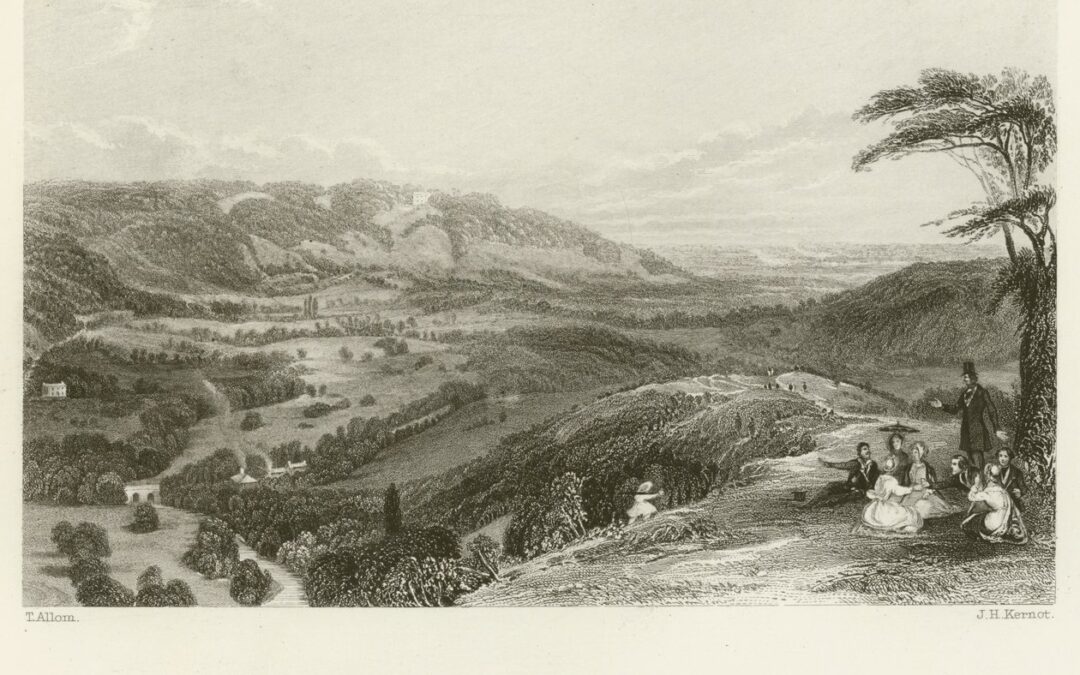 Austen’s Emma has two picnic episodes, one of which never happens * and the other a proper picnic at Box Hill. During strawberry season, Emma Woodhouse and her crowd gather in Knightley’s Donwell Abbey garden. Mrs. Elston’s enthusiastic plan for a...
Austen’s Emma has two picnic episodes, one of which never happens * and the other a proper picnic at Box Hill. During strawberry season, Emma Woodhouse and her crowd gather in Knightley’s Donwell Abbey garden. Mrs. Elston’s enthusiastic plan for a...
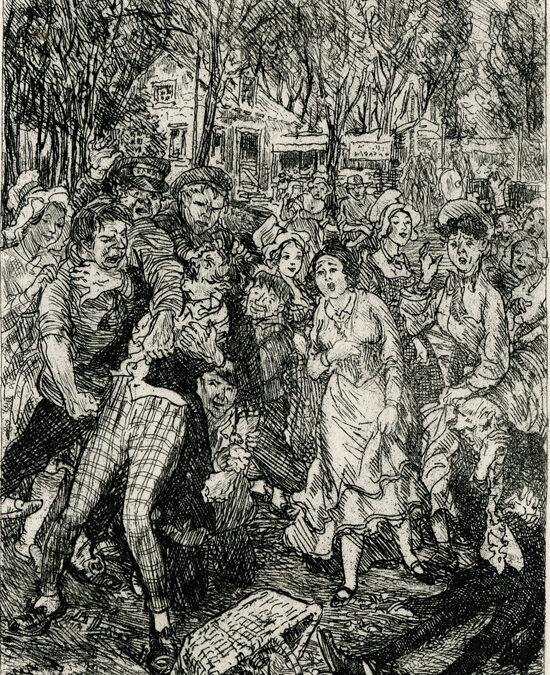 De Kock sometimes styled the French Dickens, is known for his broad portrayals of the Parisian working-class society, affairs, cabarets, and other entertainment. In Monsieur Dupont, the entertainment spotlighted is a tumultuous picnic at Romainville, still a popular...
De Kock sometimes styled the French Dickens, is known for his broad portrayals of the Parisian working-class society, affairs, cabarets, and other entertainment. In Monsieur Dupont, the entertainment spotlighted is a tumultuous picnic at Romainville, still a popular...
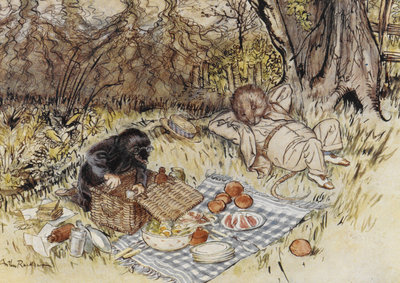 Grahame’s picnic in The Wind in the Willows (1908) is a wonder. What child (or adult) could ever conceive of a picnic for one eating basket full of “cold chicken. ....
Grahame’s picnic in The Wind in the Willows (1908) is a wonder. What child (or adult) could ever conceive of a picnic for one eating basket full of “cold chicken. ....
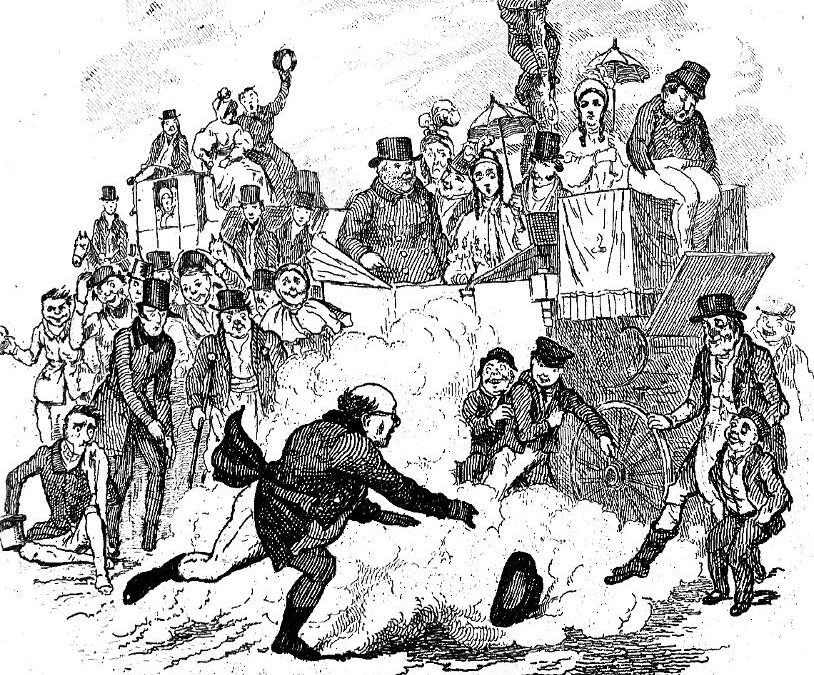 Dickens does not use the word picnic. But when the Wardles have lunch in their barouche, it’s an unmistakably a picnic: “In an open barouche, the horses of which had been taken out, the better to accommodate it to the crowded place, stood a stout old...
Dickens does not use the word picnic. But when the Wardles have lunch in their barouche, it’s an unmistakably a picnic: “In an open barouche, the horses of which had been taken out, the better to accommodate it to the crowded place, stood a stout old...
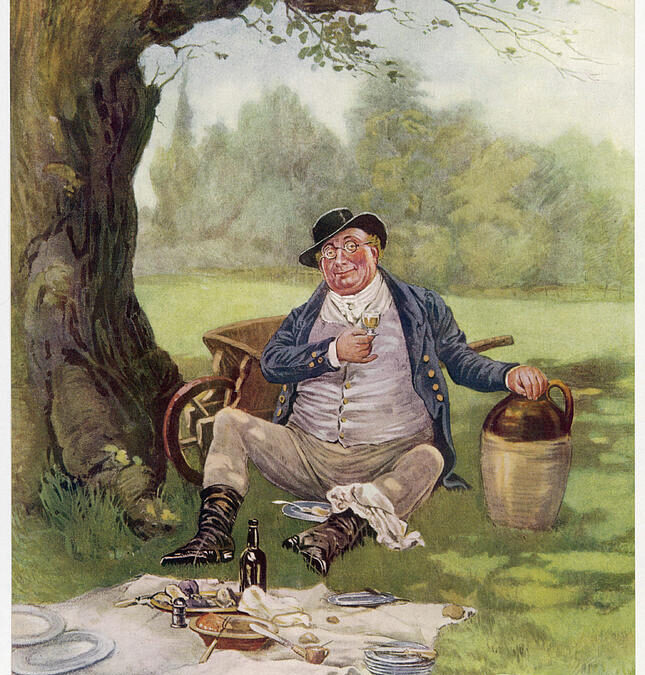 “A Pleasant Day With An Unpleasant Termination” is Dickens’s comic send-up of the Halt on the Hunt, particularly Jean-Anthelme Brillat-Savarin’s The Physiology of Taste, or Meditations on Transcendental Gastronomy (1825). Much of the comedy...
“A Pleasant Day With An Unpleasant Termination” is Dickens’s comic send-up of the Halt on the Hunt, particularly Jean-Anthelme Brillat-Savarin’s The Physiology of Taste, or Meditations on Transcendental Gastronomy (1825). Much of the comedy...
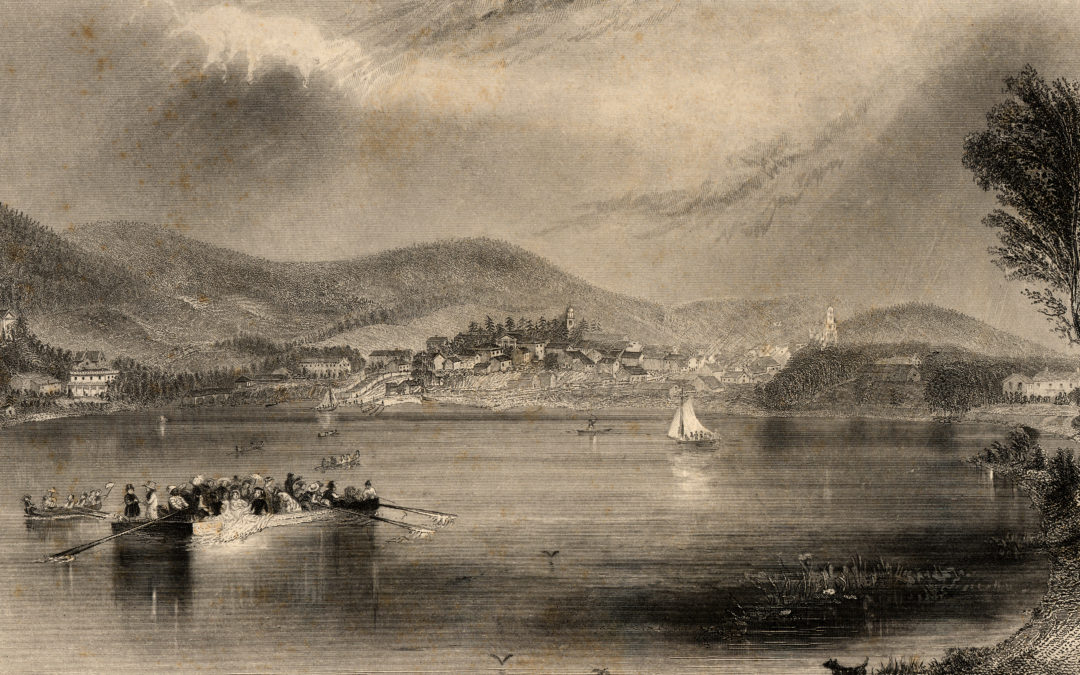 After living abroad for eight years, James Fenimore Cooper regarded Cooperstown’s townspeople as his social inferiors. The locals understood him to be a snob. The matter became contentious when the locals contested Cooper’s ownership of The Point, a small...
After living abroad for eight years, James Fenimore Cooper regarded Cooperstown’s townspeople as his social inferiors. The locals understood him to be a snob. The matter became contentious when the locals contested Cooper’s ownership of The Point, a small...
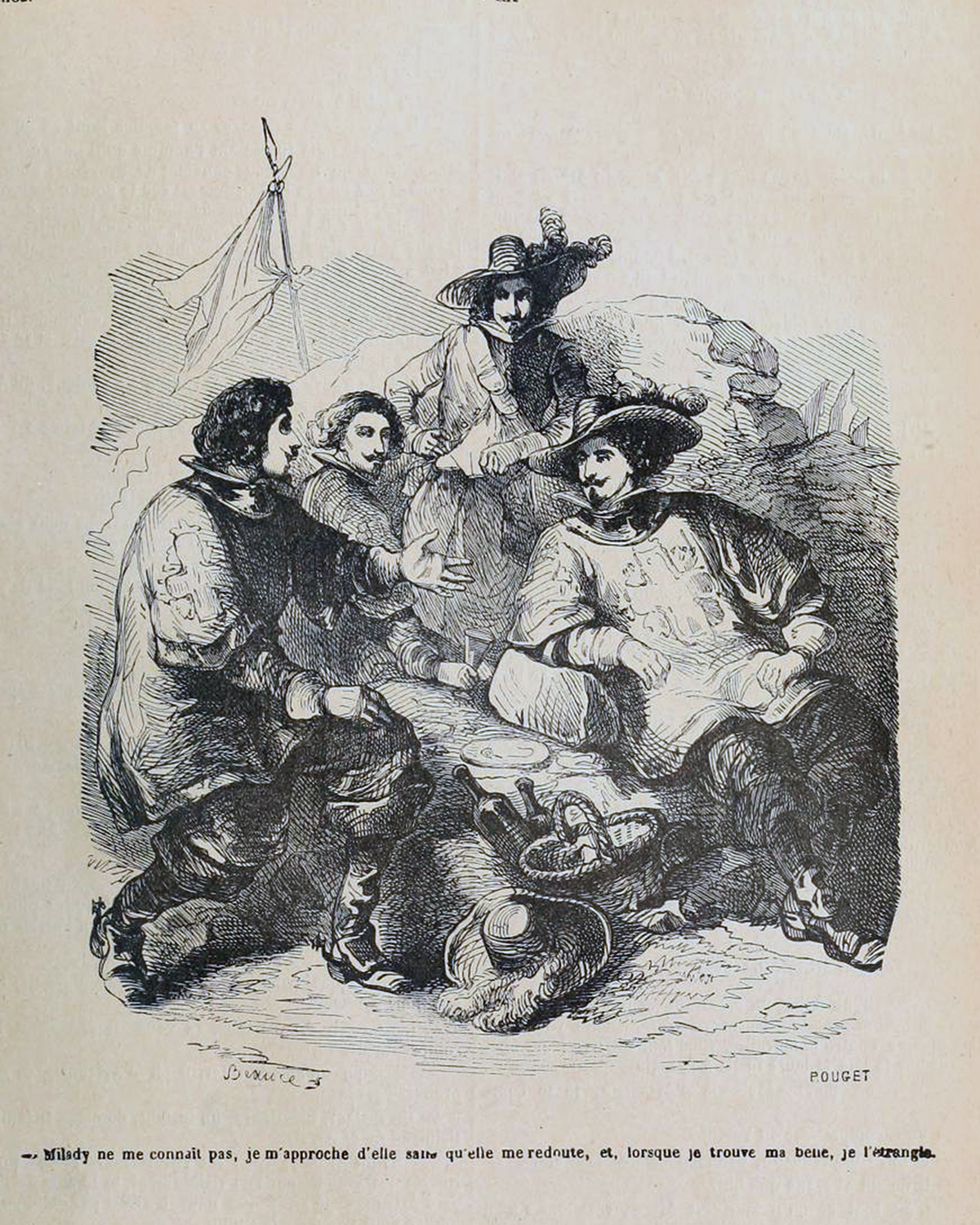 The battlefield déjeuner sur l’herbe in The Three Musketeers set a pattern for sardonic picnic humor. * Dumas and Auguste Maquet (his co-author) add comic relief to the severe Siege of La Rochelle when during a lull in the battle, Athos makes a bet that he,...
The battlefield déjeuner sur l’herbe in The Three Musketeers set a pattern for sardonic picnic humor. * Dumas and Auguste Maquet (his co-author) add comic relief to the severe Siege of La Rochelle when during a lull in the battle, Athos makes a bet that he,...
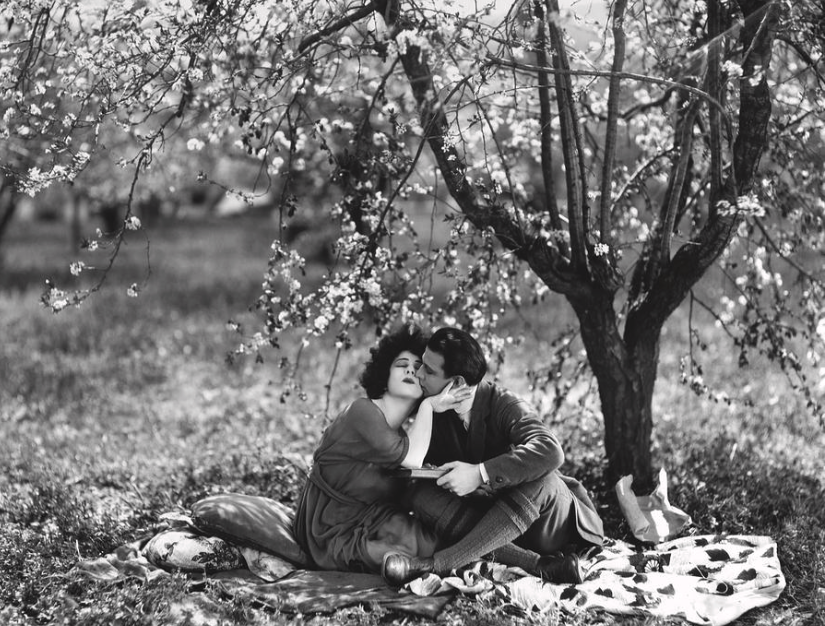 Dumas, fils’s La Dame aux Camélias does not have a picnic episode. But Roy C. Smallwood’s Camille makes a lover’s picnic a set piece.
Dumas, fils’s La Dame aux Camélias does not have a picnic episode. But Roy C. Smallwood’s Camille makes a lover’s picnic a set piece.
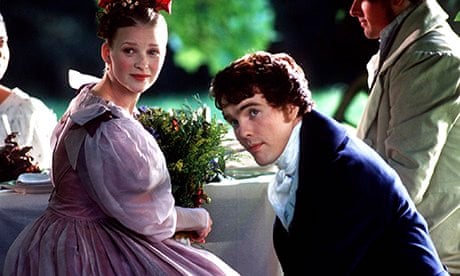 “Blissful” is Dickens’s word to describe Copperfield’s tenderest memories of Dora Spenlow’s picnic birthday party. He’s about nineteen and obsessed, getting up before 6 AM to buy flowers, so they are fresh. The picnic is near...
“Blissful” is Dickens’s word to describe Copperfield’s tenderest memories of Dora Spenlow’s picnic birthday party. He’s about nineteen and obsessed, getting up before 6 AM to buy flowers, so they are fresh. The picnic is near...
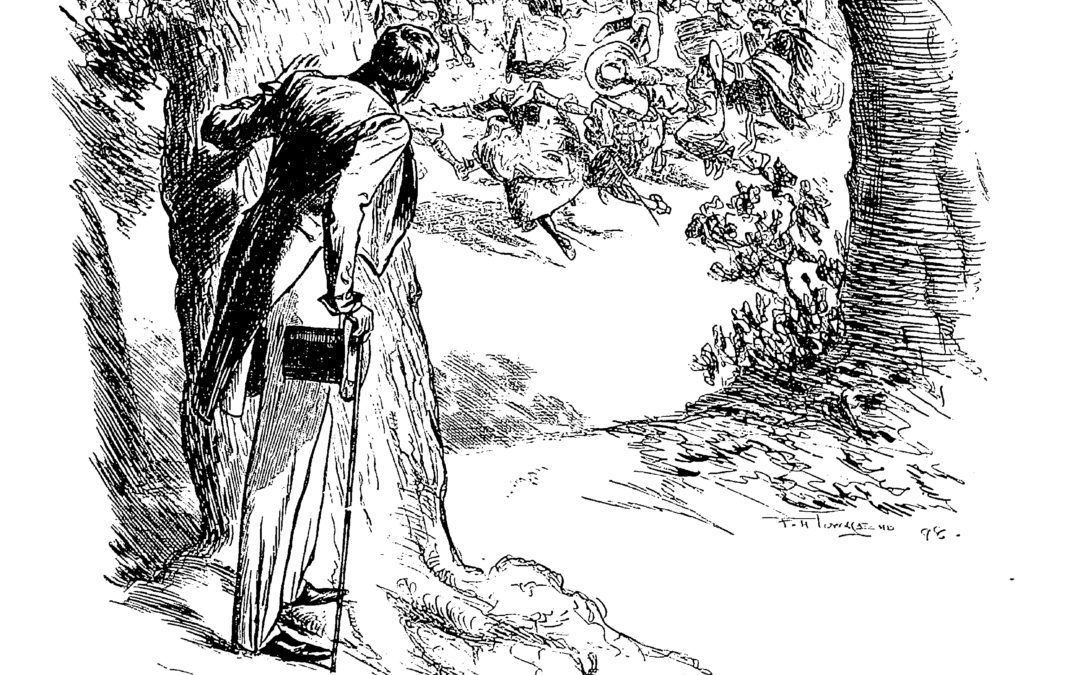 Hawthorne’s memories of Brook Farm were a childish and boisterous masquerade picnic party for a six-year-old boy. Hawthorne refused to participate and “lay under the trees and looked on.” A decade later, Hawthorne refashioned this party an unpleasant...
Hawthorne’s memories of Brook Farm were a childish and boisterous masquerade picnic party for a six-year-old boy. Hawthorne refused to participate and “lay under the trees and looked on.” A decade later, Hawthorne refashioned this party an unpleasant...











